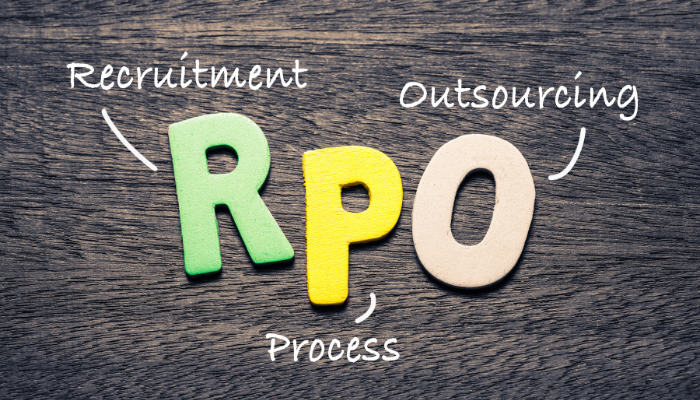Recruitment outsourcing has become increasingly popular as organizations seek more efficient and effective ways to acquire top talent. However, evaluating the Return on Investment (ROI) is crucial for organizations to determine the value and effectiveness of such arrangements. This comprehensive guide aims to provide insights and a framework for evaluating the ROI of recruitment outsourcing.
THE NEED FOR EVALUATING ‘ROI’ IN RECRUITMENT OUTSOURCING
Evaluating the ROI requires a multifaceted approach that considers various factors and metrics. By establishing clear and measurable metrics, organizations can track the impact of outsourcing on recruitment outcomes, such as time-to-fill positions, cost-per-hire, and quality of hires. Comparing the costs of in-house recruitment versus outsourcing is another important aspect to consider, including direct costs and indirect costs associated with the recruitment process. Additionally, organizations should consider the intangible benefits of outsourcing, such as access to a larger talent pool and improved scalability.
By evaluating the ROI of outsourcing, organizations can make informed decisions about their talent acquisition strategies, optimize recruitment processes, and drive positive business outcomes. This guide will delve into the key considerations, methodologies, and best practices to help organizations navigate the evaluation process effectively.
- Establish Clear Metrics: To effectively evaluate the ROI of outsourcing, organizations need to establish clear and measurable metrics that align with their recruitment goals. Some key metrics to consider include:
- Time-to-Fill Positions: Measure the average time it takes to fill a position from the initiation of the recruitment process to the candidate’s onboarding.
- Cost-per-Hire: Calculate the total cost incurred in hiring a candidate, including advertising expenses, recruitment software, internal staff salaries, and fees paid to outsourcing providers.
- Candidate Quality: Assess the quality of hires by evaluating their skills, qualifications, and alignment with the organization’s requirements.
- Retention Rates: Track the percentage of hires who remain with the organization after a specified period, indicating the effectiveness of the recruitment process.
- Compare Costs of In-House vs. Outsourcing: Cost comparison is a crucial aspect of evaluating the ROI of outsourcing. Consider both direct and indirect costs associated with in-house recruitment and outsourcing. Direct costs include expenses such as job board fees, recruitment software licenses, and advertising costs. Indirect costs encompass the time and effort invested by internal teams in the recruitment process. Compare these costs with the fees charged by outsourcing providers to assess potential cost savings and ROI.
- Consider Intangible Benefits: In addition to cost considerations, organizations should evaluate the intangible benefits of recruitment outsourcing. These benefits may include:
- Access to a Wider Talent Pool: Outsourcing providers often have access to a larger network of candidates, enabling organizations to tap into a diverse and specialized talent pool.
- Specialized Expertise: Outsourcing providers bring in-depth knowledge and expertise in recruitment, utilizing best practices and industry insights to improve the effectiveness of the hiring process.
- Managed Services: Internal teams require oversight and management which adds further complications for organizations where outsourcing recruitment is not the core expertise. Outsourcing providers have their own process to manage the teams and for process improvement thereby requiring minimal supervision and management by organizations.
- Improved Quality of Hires: By leveraging the expertise and experience of outsourcing providers, organizations can enhance the quality of their hires, ensuring a better fit between candidates and job requirements
- Analyze and Track Performance: To evaluate the ROI effectively, it is essential to analyze and track the performance of outsourcing providers. Regularly review key metrics, gather feedback from stakeholders, and assess the provider’s ability to meet recruitment goals. This will help in identifying areas for improvement, ensuring accountability, and maximizing the ROI of outsourcing.
- Continuous Improvement: Evaluating the ROI of recruitment outsourcing should be an ongoing process. Continuously monitor performance, gather data and feedback, and refine recruitment strategies based on the findings. By embracing a culture of continuous improvement, organizations can adapt to changing market dynamics, enhance their recruitment processes, and maximize the ROI of outsourcing.
- Assess Scalability and Flexibility: When evaluating the ROI of outsourcing, it is important to consider the scalability and flexibility it offers. Outsourcing providers can quickly scale up or down their resources based on the organization’s hiring needs, allowing for greater agility in managing fluctuations in recruitment demand. This scalability ensures that the recruitment process remains efficient and cost-effective, especially during periods of high-volume hiring or expansion.

- Mitigate Risks and Increase Compliance: Outsourcing in recruitment can help organizations mitigate risks and ensure compliance with relevant laws and regulations. Professional outsourcing providers have a deep understanding of legal requirements, including equal employment opportunity (EEO) regulations and data protection laws. By partnering with a reputable provider, organizations can minimize the risk of legal issues, maintain compliance, and protect their reputation.
- Leverage Technology and Automation: AI-powered recruitment technologies and automation play a significant role in improving the ROI of recruitment outsourcing. These technologies can streamline various stages of the recruitment process, such as candidate sourcing, screening, and matching. By leveraging technology, outsourcing providers can enhance the efficiency and effectiveness of recruitment, resulting in cost savings and improved outcomes.Read More: 5 Factors and Trends of Offshore RPO World
- Enhance Candidate Experience: The candidate experience is a critical aspect of recruitment that can significantly impact an organization’s reputation and ability to attract top talent. Outsourcing providers with a focus on candidate experience can implement strategies to ensure a positive and engaging recruitment journey. This may include personalized communication, timely feedback, and a smooth and efficient application process. By enhancing the candidate experience, organizations can attract high-quality candidates and strengthen their employer brand.
- Measure Long-Term Success: In addition to short-term metrics, it is essential to consider the long-term impact of recruitment outsourcing on organizational success. Evaluate factors such as employee performance, engagement, and retention rates to determine the long-term value generated by the recruitment process. This holistic approach provides a comprehensive view of the ROI of outsourcing, considering both immediate and long-term outcomes.
Conclusion:
Evaluating the ROI of outsourcing is essential for organizations seeking to optimize their talent acquisition strategies and make informed decisions about their recruitment processes. By establishing clear metrics, comparing costs of in-house versus outsourcing, considering intangible benefits, and continuously measuring performance, organizations can assess the value and effectiveness of outsourcing arrangements. Evaluating the ROI provides valuable insights into the impact of outsourcing on recruitment outcomes, cost savings, and overall business success. Ultimately, a well-executed and comprehensive evaluation of recruitment outsourcing ROI can help organizations make informed decisions that drive improved recruitment results, cost efficiencies, and business growth.
ANS RPO is a leading offshore RPO solution provider.


